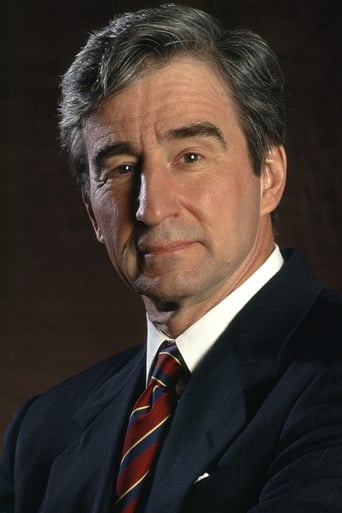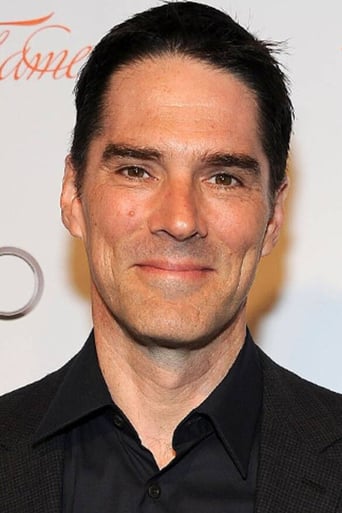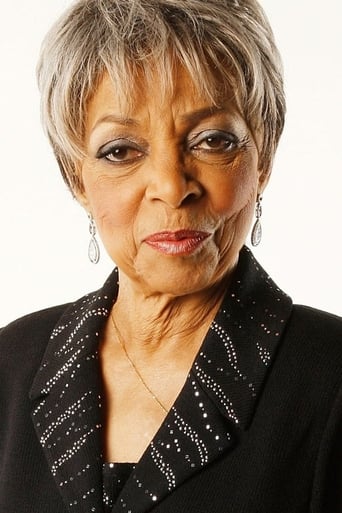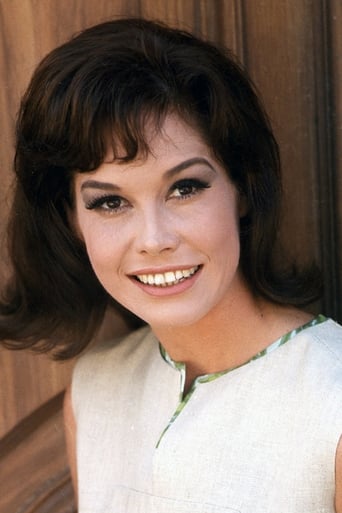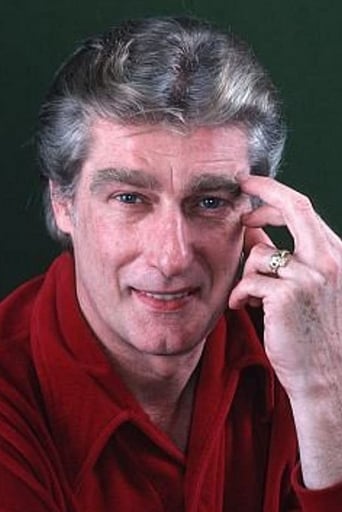Hayden Kane
There is, somehow, an interesting story here, as well as some good acting. There are also some good scenes
Robert J. Maxwell
The natural tendency of a TV movie made about a turbulent time in history is to turn the story into a soap opera. That way, the producers can avoid expensive and expansive battle scenes with millions of extras, impeccable props and sets, monumental stars, and dialog that, having been rewritten and polished to a sheen, sings with poetry. Instead we can get a love triangle with two people in each scene, arguing and insinuating away to beat the band.This isn't that kind of TV movie. In the first place, it's adapted with some felicity by Ernest Kinoy from Gore Vidal's novel. The novel itself, while no masterpiece, wasn't bad and it stuck pretty close to historical facts. Vidal's characters, as he himself put it, went where they did and did what they did much as they did in real life. The novel had its amusing moments too, some inadvertent. Aboard a boat in Chesapeake Bay, Vidal has the weather worsening because "the wind was now coming from leeward." But at least he didn't turn Lincoln into a closet homosexual.The battle scenes are a little perfunctory, probably because there wasn't as much money sunk into this production as Turner had available for the elephantine "Gettysburg." But the battle scenes aren't too important anyway. It's the outcome of the battles that count, and these are written into the dialog. It's enough to know that on the peninsula, General George McLellan was outmaneuvered by a Confederate force that he outnumbered ten to one. (The film doesn't mention it but the Rebs were led by a general who in civilian life had been a theatrical actor.) The film divides itself about equally between three narrative threads. (1) Lincoln's conduct of the Civil War. (2) Lincoln's political battles with his adversaries. And (3) Lincoln's life at home with his dysfunctional family.And, boy, what a dysfunctional family it was. Abe and Mary Todd Lincoln were equally matched. She was manic and he was depressive. (I eschew the unnecessarily lengthy definitions.) Mary's impulsive and ill-judged buying sprees were symptomatic, as was Abe's severe depression as a young man. One of their three children suffered from Attention Deficit Disorder with Hyperactivity, which is made clear in the novel but not in the film. Furthermore, Mary, a firm abolitionist but not a radical one, came from a slave-owning family in a border state. Some of her relatives fought on the other side. Lincoln himself, a pragmatist, only freed some of the slaves with his Emancipation Proclamation, and he had to wait for a Union victory to announce it in order to keep the Republican congress in power. (Antietam -- some "victory".) Anyway, that's a lot of potential domestic conflict to explore.Sam Waterston as Lincoln, Mary Tyler Moore as Mary Todd Lincoln, Richard Mulligan and Tom Brennan as cabinet members, Steven Culp as Lincoln's secretary, and Ruby Dee as Mary Lincoln's handmaiden pull it all together in a surprisingly effective way. There isn't a sour note in the bunch. Even the smaller roles, like Jeffrey DeMunn as Lincoln's former law partner, William Herndon, are well played.The script is sprinkled with Lincoln's down-home expressions and his colorful analogies. McClellan has "a case of the slows." And if Little Mac isn't going to use his Army, Lincoln proposes to borrow it for a while and put it to work. When Lincoln suspects that the City Council in Baltimore is about to meet and may secede from the union, he throws the lot of them in jail and dispenses with habeus corpus. Can you imagine such a thing happening today? The movie leaves out a lot of Abe's bon mots but it's just as well because in the end, this is a tragic story, in more ways than one. Not only does the war kill more Americans than all our other wars combined, but of course Lincoln, perhaps our greatest president, is assassinated by a zealot. And Mary goes mad and is placed in a sanitarium for safe keeping by her own children. And there followed the destruction and humiliation of the South during Reconstruction, ensuring a lasting bitterness between two cultural regions that remained almost separate nations for the next hundred years.I'm glad this movie was made -- and made as well as it was. Lincoln held the country together during its most perilous years. Some may claim his reputation has been inflated but it's hard to see how it could have been. The movie should be shown in high school history classes -- maybe college history classes too. In a poll about ten years ago, a substantial number of college freshman couldn't place the American Civil War in its proper half-century. What's worse, the percentage didn't improve among seniors.
andrewk-3
I must disagree strongly with the correspondant who describes this film as garbage. I believe the production team, the writer and the efforts of Waterston and Tyler Moore have brilliantly captured Vidals characterisation of Honest Abe, both as politician and as a family man. Vidals GENIUS is the bi-play between Lincoln and Seward and Lincoln and Chase but in a three hour film it would be quite impossible to portray these intense rivalries and do any justice at all to the quality of the book. Many characters from the book are missing and there is no play at all of the assassination plotters that threads through the book. Nevertheless the Lincoln that has been lifted from the page makes for a most enjoyable film and well worth a viewing
Weeluuv
I'm very glad to see this one out on video at last, as the one I had from TV is worn out. I found Sam Waterston's performance to be wonderfully well-rounded. From the calculated Lincoln wit & military management,to his personal powerlessness in the face of on going family tragedy. One of the best depictions of Abraham Lincoln I have seen, & I would be quite happy to see him take another turn at it anytime he gets the chance!Mary Tyler Moore was marvellous as Mary Todd Lincoln, conveying the extremes of mental illness without going over the top & nullifying her warmth, intelligence, & independence, as other portrayals have!Imagine my surprise upon renting this again, to find Thomas Gibson (Darhma & Greg) was Sprague. That's part of the fun of watching something not seen for a while, in my opinion; Seeing favorite performances again, & realizing who you'd watched before they were famous!
